Publications
-
 Sounds of Democracy: The Interview as an Instrument of Heuristic Attention to Discursive Voices
Sounds of Democracy: The Interview as an Instrument of Heuristic Attention to Discursive VoicesAgainst the backdrop of general considerations of the interview as a genre, the paper discusses under which theoretical conditions interviews are suitable instruments for discourse analysis. With a special interest in questions of the linguistic constitution of shared knowledge in discourse, the authors outline the discourse-linguistic status of interviews in a systematic way.
-
 Ethnographie als Werkzeug (in) der Rechtswissenschaft
Ethnographie als Werkzeug (in) der RechtswissenschaftLegal research is usually done at a desk, discussions are possible by telephone and even archives are usually accessible online, and most work is based on academic literature. But what insights, perspectives and research subjects are missed by legal research for which researchers do not leave their desks? And how can the gaps be filled?
-
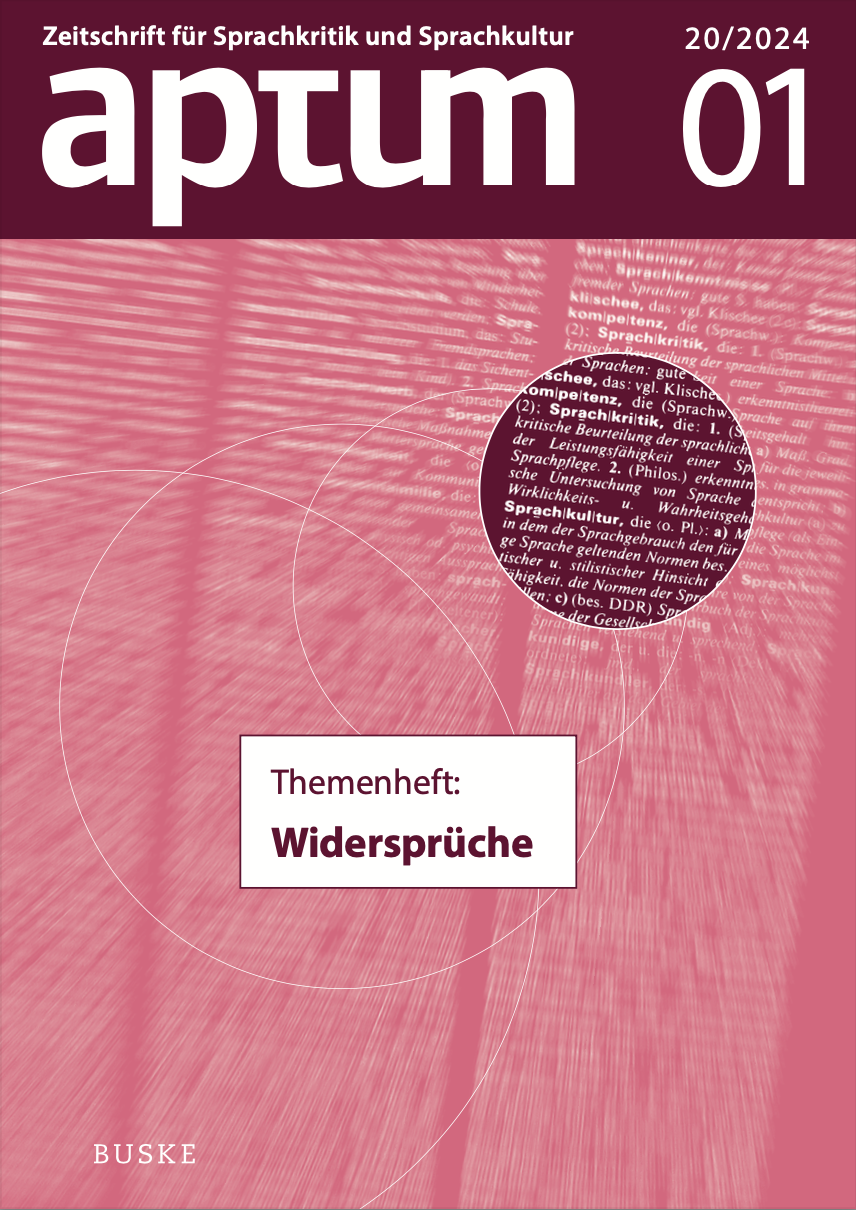 „Man kann sich nicht gleichzeitig für Feminismus und Freiheit einsetzen.“ Zur diskursgrammatischen Konstitution von Antonymie
„Man kann sich nicht gleichzeitig für Feminismus und Freiheit einsetzen.“ Zur diskursgrammatischen Konstitution von Antonymie
-
 Diskurs ist Widerspruch
Diskurs ist WiderspruchIntroduction to the special issue Widersprüche.
-
 Als Wien zum Zentrum des tschechoslowakischen Dissens‘ wurde
Als Wien zum Zentrum des tschechoslowakischen Dissens‘ wurde
-
 Nachhaltig nicht-nachhaltig. Rechte indigener Gruppen im Freihandelsabkommen EU-Mercosur
Nachhaltig nicht-nachhaltig. Rechte indigener Gruppen im Freihandelsabkommen EU-MercosurEuropean demand for raw materials is growing as part of the energy transition. Many of the raw materials required for the energy transition are located on the territories of indigenous peoples, which often leads to conflicts. Against this backdrop, it is surprising that the planned agreement between the EU and the Mercosur states does not contain any provisions regarding the participation and protection of indigenous peoples. A reference to such provisions, in particular from ILO Convention 169, would be required under international law and would help to make the conflicts and contradictions of the concept of sustainability negotiable.
-
 Review: Nationsbildung und Außenpolitik im Osten Europas
Review: Nationsbildung und Außenpolitik im Osten EuropasReview of the edited volume Nationsbildung und Außenpolitik im Osten Europas. Nationsbildungsprozesse, Konstruktionen nationaler Identität und außenpolitische Positionierungen im 20. und 21. Jahr-hundert (ed. Bianka Pietrow-Ennker).
-
 Agency and Incentives of Diasporic Political Influencers on Facebook Malawi
Agency and Incentives of Diasporic Political Influencers on Facebook MalawiThis article examines the agency and incentives that drive the activism of diasporic political influencers on “Facebook Malawi,” an online imagined political community. In their seminal work on “social media dissidents” and “social media self-made activists” in the Global South, Matsilele and Sharra demonstrate that social media activists engage with different strategies to initiate movements, mobilize citizens, and create their brands in strong opposition to authoritarian regimes which repositions them as freedom fighters in the eyes of the masses and enemies of the state. Correspondingly, we frame diasporic political influencers as actors aided by digital technologies who engage in “long-distance nationalism” on Facebook against authoritarianism in the homeland. We deploy a qualitative mixed methods approach to analyze Facebook data of two diasporic political influencers, Onjezani Kenani and Manes Winnie Hale, who gave informed consent to use their Facebook data generated in 2018 and 2021, a period preceding and following the 2019 Malawi tripartite elections. A thematic analysis of 250 Facebook posts and interview data with the two influencers illustrates how they exercise their agency in their quest for a vision of a better Malawi while navigating a complex and ambivalent web of online and offline threats, incentives, and interests. Implicated in the political communication and mobilization of the two are different strategies that include verbal inventiveness, trolling, and exposing. The article also shows how the concept of long-distance nationalism needs to be adapted in studying diasporic political influencers.
-
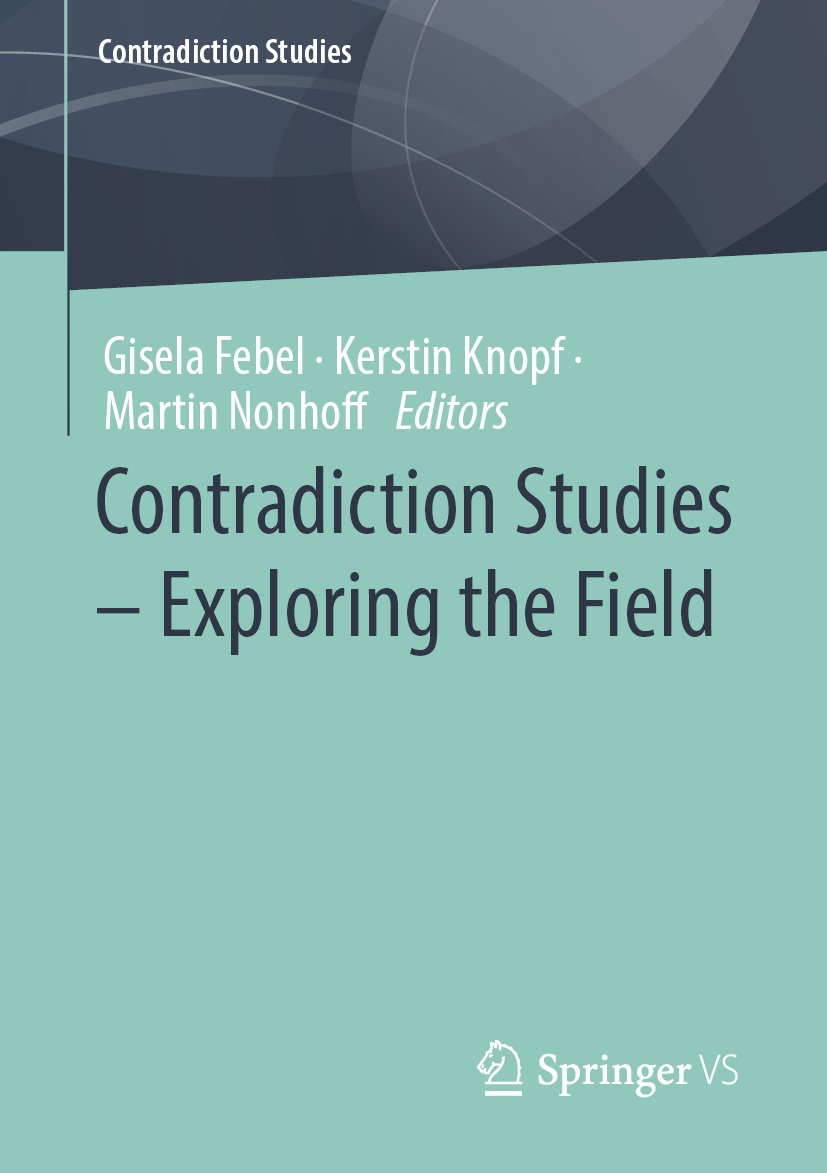 Contradiction Studies – Exploring the Field
Contradiction Studies – Exploring the Field“Contradiction” is a core concept in the humanities and the social sciences. Beside the classical ideas of logical or dialectical contradiction, instances of “lived” contradiction and strategies of coping with it are objects of this study. Contradiction Studies discuss the many ways in which explicit or implicit contradictions are negotiated in different political or cultural settings. This volume collects articles that tackle the concept of contradiction, practices of contradicting and lived contradictions from a number of relevant perspectives and assembles contributions from linguistics, literary studies, philosophy, political science, and media studies.
-
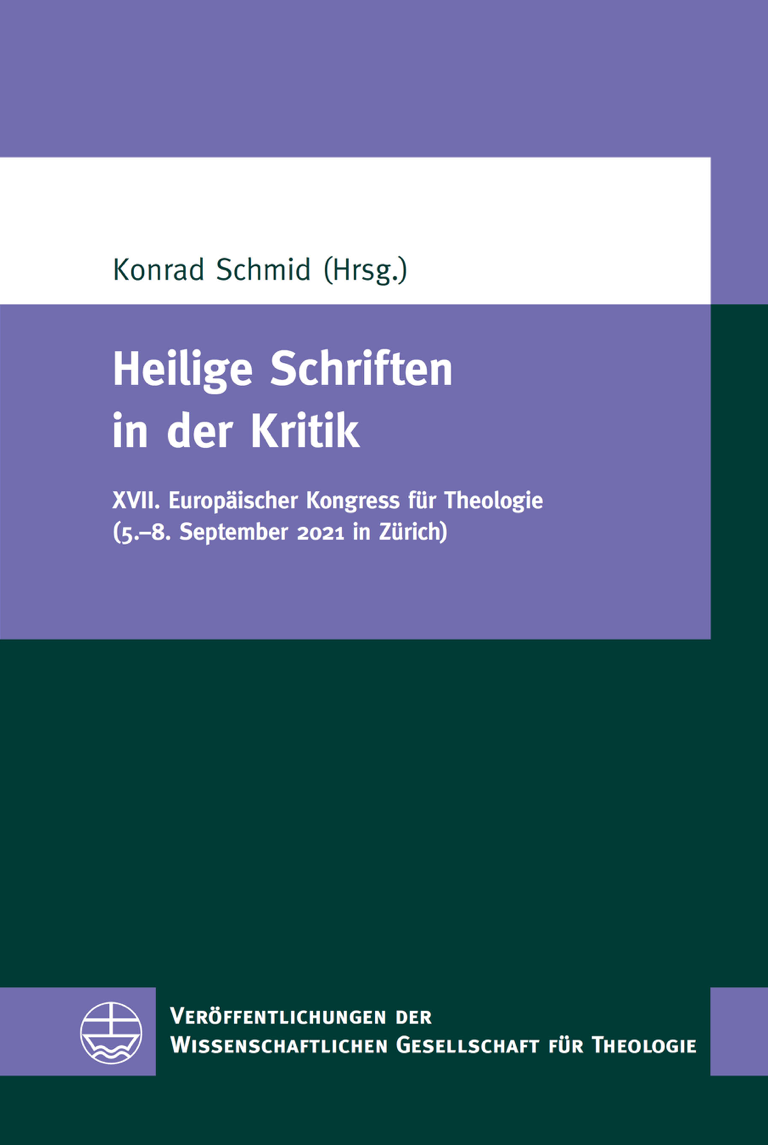 Aristokratie der Buchreligionen? Heilige Schriften aus religionswissenschaftlicher Perspektive
Aristokratie der Buchreligionen? Heilige Schriften aus religionswissenschaftlicher Perspektive
-
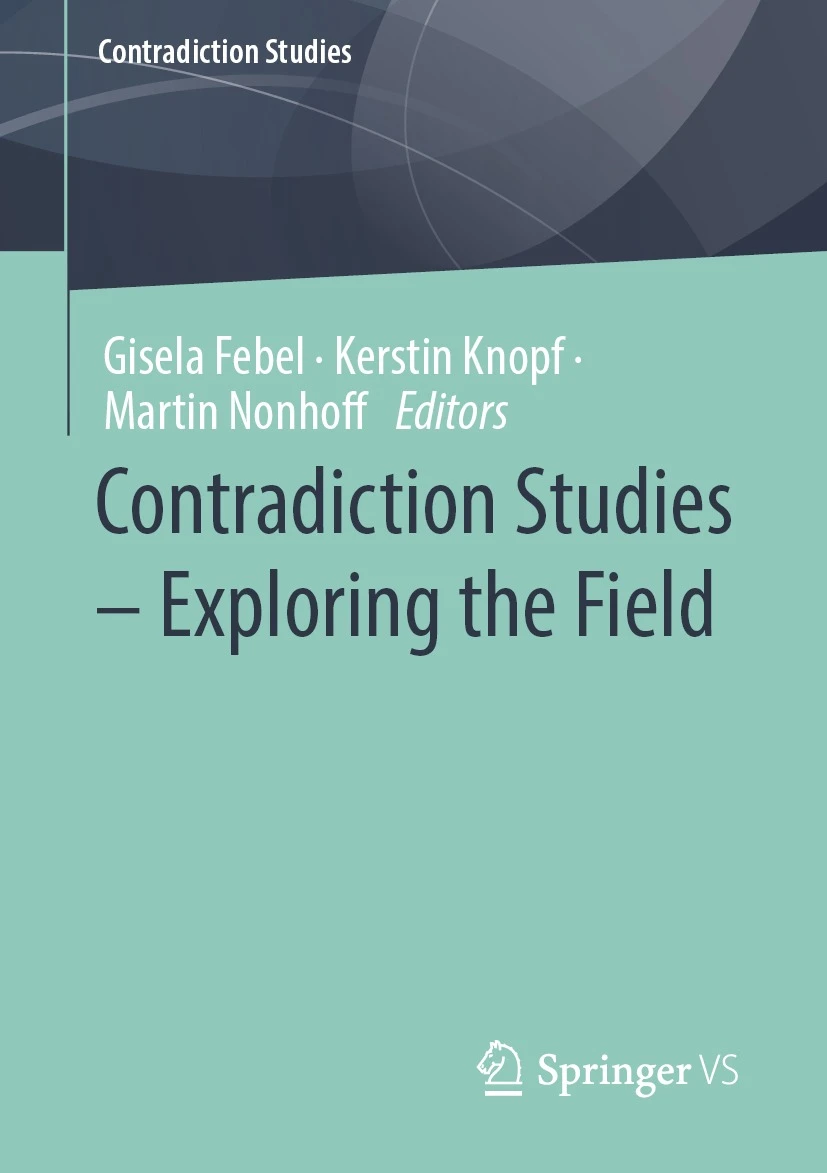 Contradiction Studies – Exploring the Field. An Introduction
Contradiction Studies – Exploring the Field. An IntroductionSince antiquity in Greece, the Law of Non-Contradiction (LNC) is considered to be the foundation of all philosophy. As Aristotle maintains in Metaphysics, “the same attribute cannot at the same time belong and not belong to the same thing and in the same respect” (1005b, 19–23).
-
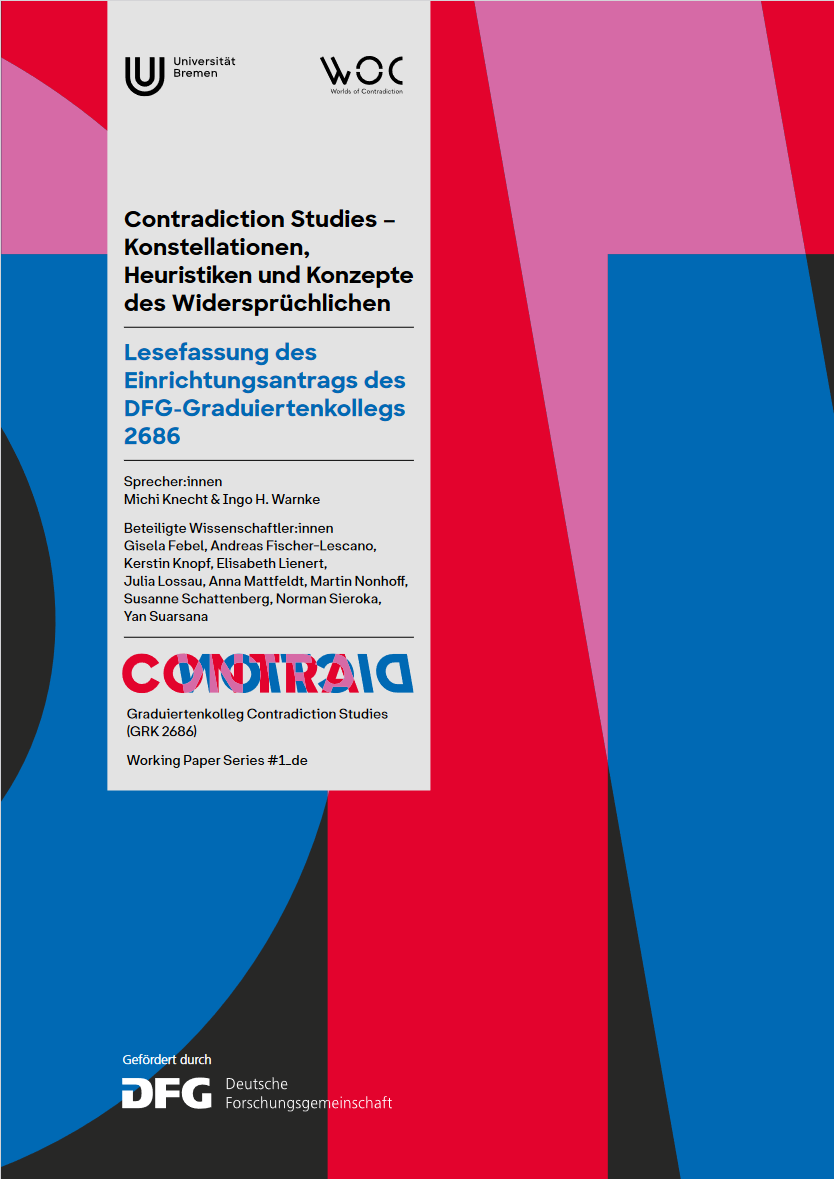 Working Paper “Einrichtungsantrag Contradiction Studies – Konstellationen, Heuristiken und Konzepte des Widersprüchlichen, Lesefassung”
Working Paper “Einrichtungsantrag Contradiction Studies – Konstellationen, Heuristiken und Konzepte des Widersprüchlichen, Lesefassung”The Research Training Group 2686 Contradiction Studies researches the formation, negotiation and explanatory limits of contradiction.
The point of departure is the assumption that the ordering figure of contradiction with the imperative to resolve contradictions is often in tension with everyday experiences of contradictions in living together. Constellations of contradiction, contradiction avoidance, contradictions and practices of contradiction are therefore systematically researched and established as objects of investigation in the humanities, social sciences and law. The research group combines discourse-, narrative- and text-centred approaches with ethnographic and other qualitative-empirical methods. On the basis of case studies and genealogically or analytically orientated projects, the Centre carries out conceptual and theoretical work. This aims to re-evaluate contradiction, contradictions and contestation in their empirical constellations, heuristic functions and ontological dimensions – also in response to post- and decolonial discussions on the cosmopolitanisation of knowledge production.
-
 Multidirektionale Lexik in der Diskursgeschichte des 20. Jahrhunderts
Multidirektionale Lexik in der Diskursgeschichte des 20. Jahrhunderts
-
 Widerspruchsresponsive Nachhaltigkeit
Widerspruchsresponsive NachhaltigkeitThe EU’s free trade agreement with New Zealand fails to establish a critical concept of sustainability On July 9, 2023, the European Union and Aotearoa New Zealand concluded a comprehensive free trade agreement, which the European Commission describes as the most ambitious agreement ever with regard to sustainability issues. A closer look reveals that the scope of regulation is more comprehensive and progressive in many respects than in other agreements. Nevertheless, deficits can be identified in the design of the dispute settlement procedure, which are also due to the fact that the sustainability chapter is unable to establish a critical concept of sustainability that is sensitive to its contradictions. Findings from Contradiction Studies can help to fill this gap. Contradictions are associated with the concept of sustainability as it is used in the agreement. Only its recognition makes it possible to negotiate these contradictions at a legal level. To this end, the dispute settlement procedure must be made more effective with the involvement of civil society actors.
-
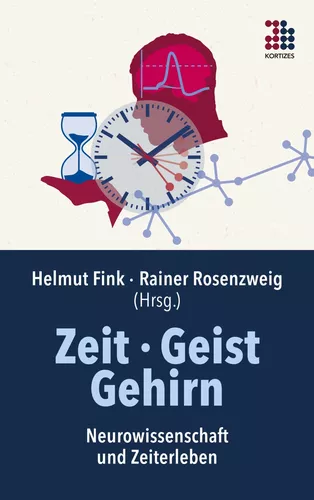 Zeitliche Vielfalt – Erscheinungsformen von Zeit und die Aufgabe der Philosophie
Zeitliche Vielfalt – Erscheinungsformen von Zeit und die Aufgabe der PhilosophieProceedings of the symposium Zeit · Geist · Gehirn. Neurowissenschaft und Zeiterleben 2021.
-
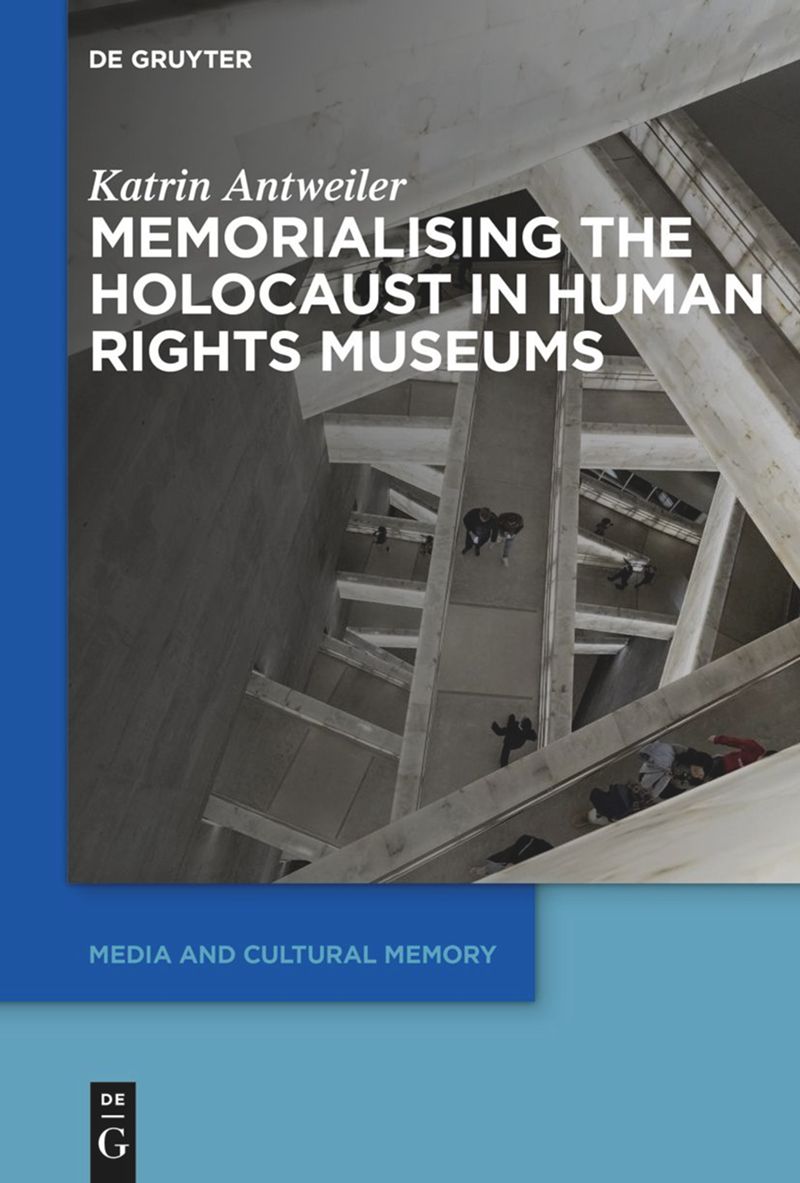 Memorialising the Holocaust in Human Rights Museums
Memorialising the Holocaust in Human Rights MuseumsThis book provides an analysis of the forms and functions of Holocaust memorialisation in human rights museums by asking about the impact of global memory politics on how we imagine the present and the future. It compares three human rights museums and their respective emplotment of the Holocaust and seeks to illuminate how, in this specific setting, memory politics simultaneously function as future politics because they delineate a normative ideal of the citizen-subject, its set of values and aspirations for the future: that of the historically aware human rights advocate.
-
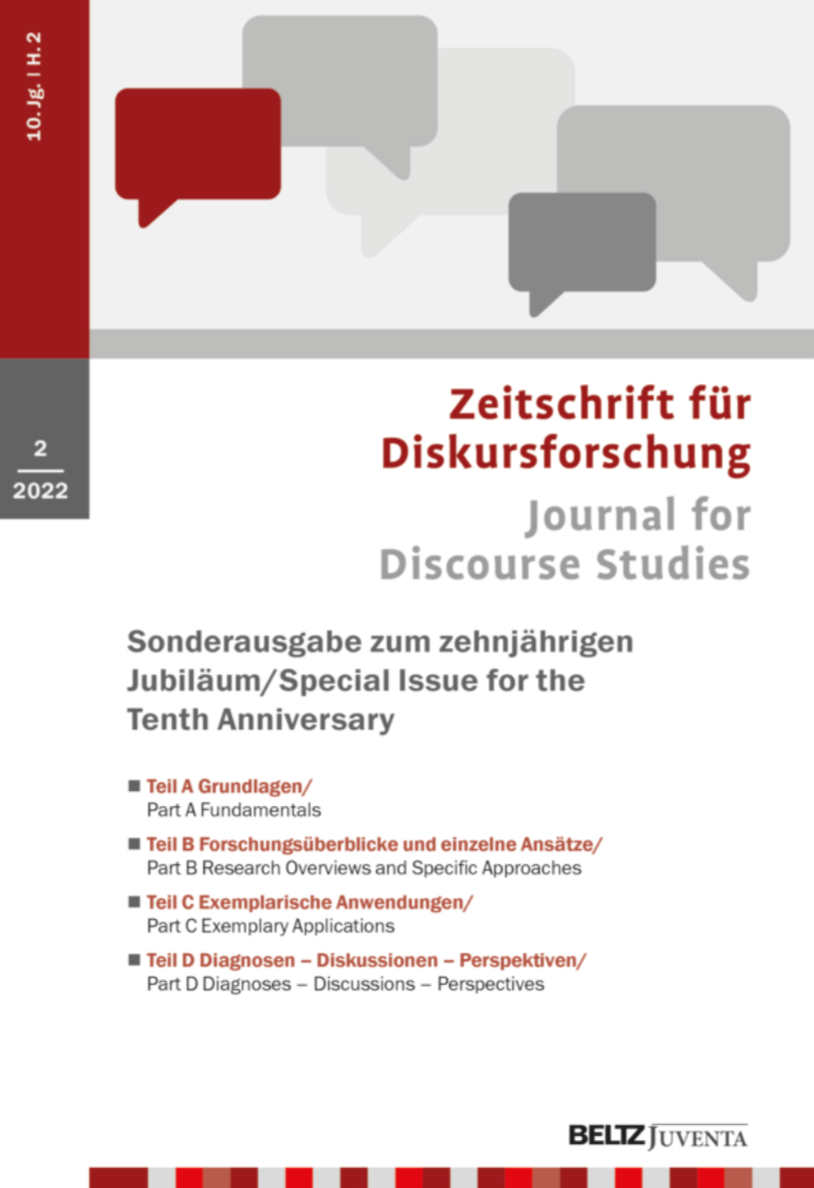 Mythos Zuhören – Bemerkungen zur Diskursphänomenologie gerichteter Aufmerksamkeit
Mythos Zuhören – Bemerkungen zur Diskursphänomenologie gerichteter AufmerksamkeitBased on the omnipresence of euphemistic talk about listening, the essay examines the network of relationships between listening and discourse. A widespread myth, in which listening is understood in isolation as a replicative action and the imponderables of listening are systematically covered up, is contrasted with the assumption that listening is language in contradiction and as such constitutive for discourse and vice versa. The question is about the possibilities of a sociolinguistics of listening and in particular about a conceptual classification of listening in the field of tension between the positivity of speech and the intentionality of listening. I speak of discourse phenomenology, without overlooking the fact that this also breaks up a scientific-historical juxtaposition of discourse analysis and phenomenology.
-
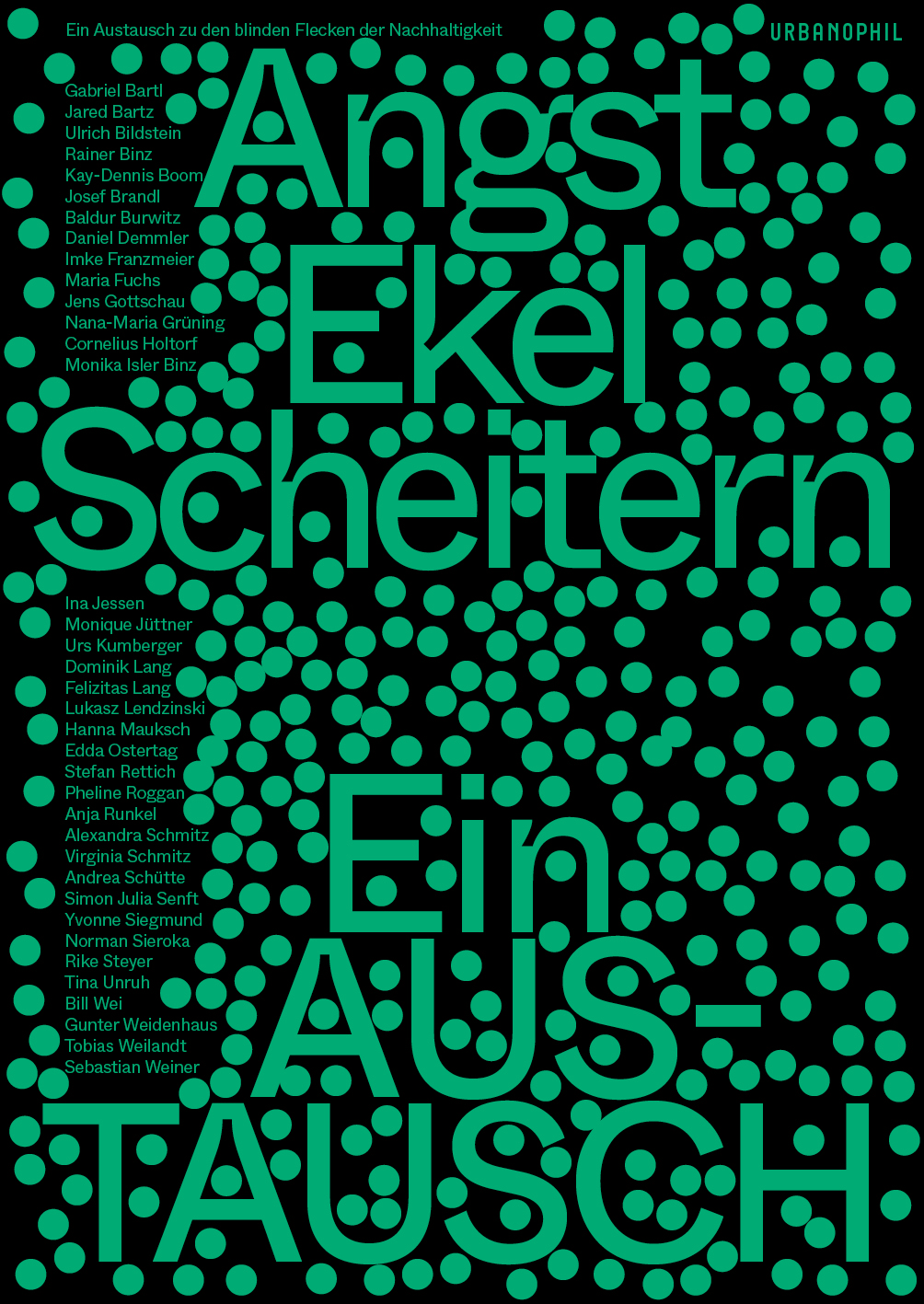 Ritual und Experiment – Versuch einer Annäherung an die Natur
Ritual und Experiment – Versuch einer Annäherung an die NaturThe relationship between man and nature is subject to constant change. While nature was long considered threatening and alien, the idea of man in harmony with nature developed in the 16th century. Another profound change in this relationship has been accompanied by industrialisation and rapid urbanisation since the 19th century. The relationship between humans and nature is becoming unbalanced and jeopardises the survival of many species, including humans, on this planet. The environmental debate that has been ongoing since the 1960s has only been able to change this to a limited extent. Rather, there seems to be a persistent inability – a ‘blind spot’ – to (re)establish and maintain socio-ecological relationships with our habitat. The urgent question arises as to how we can get closer to nature again and which strategies appear helpful for this.
-
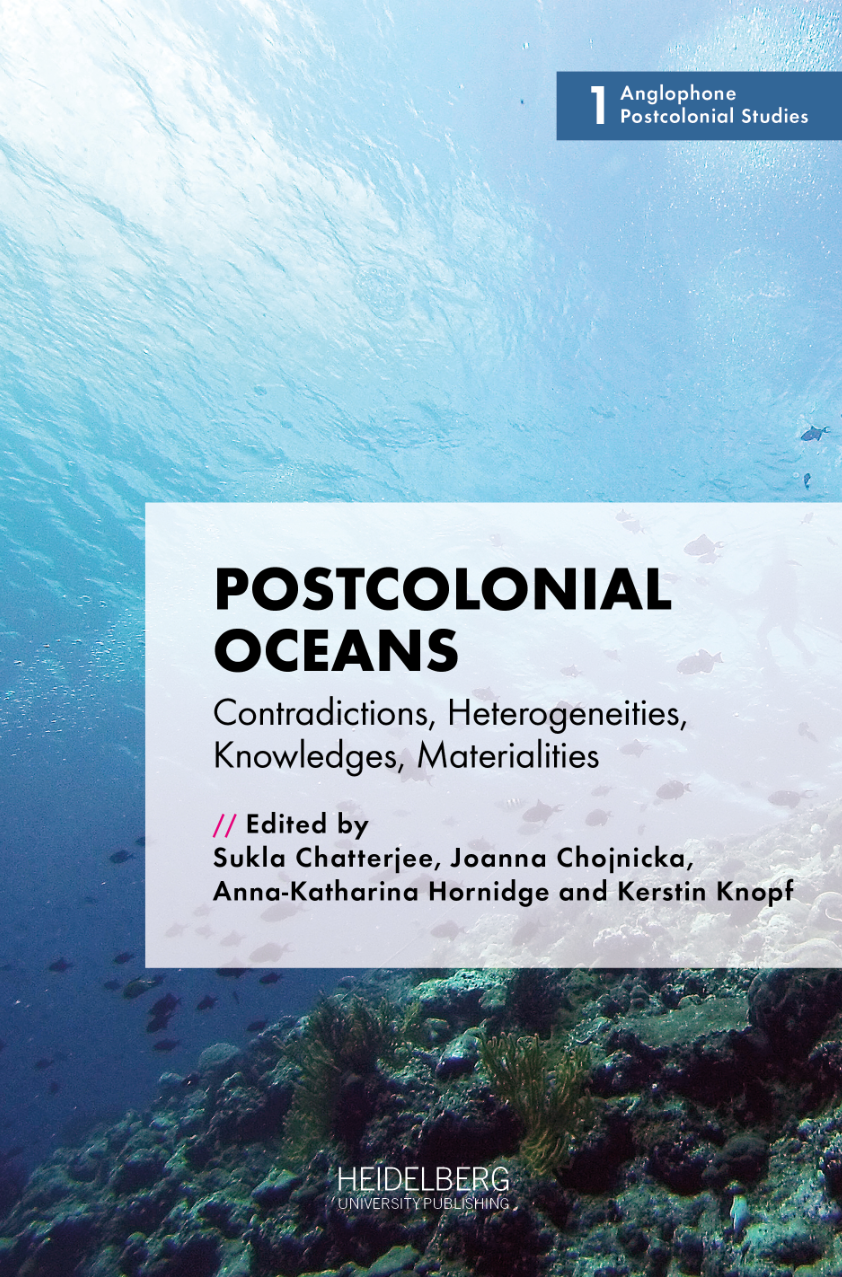 Postcolonial Oceans. Contradictions, Heterogeneities, Knowledges, Materialities
Postcolonial Oceans. Contradictions, Heterogeneities, Knowledges, MaterialitiesThis book contributes to the study of oceans, seas, coastal waters, and rivers within blue humanities by broadening, circulating, and interweaving knowledge about such waters, ocean epistemologies, and sea narratives from pluriversal epistemological, geographical, cultural, and disciplinary perspectives. The contributors from Africa, Asia, the Caribbean, Europe, North America and the Pacific explore the interconnections between oceans, coastal areas, rivers, humans, animals, plants, organisms, and landscapes in the fields of cultural history and cultural studies, critical race and postcolonial studies, marine and environmental studies, linguistics, literature, film and media studies.
-
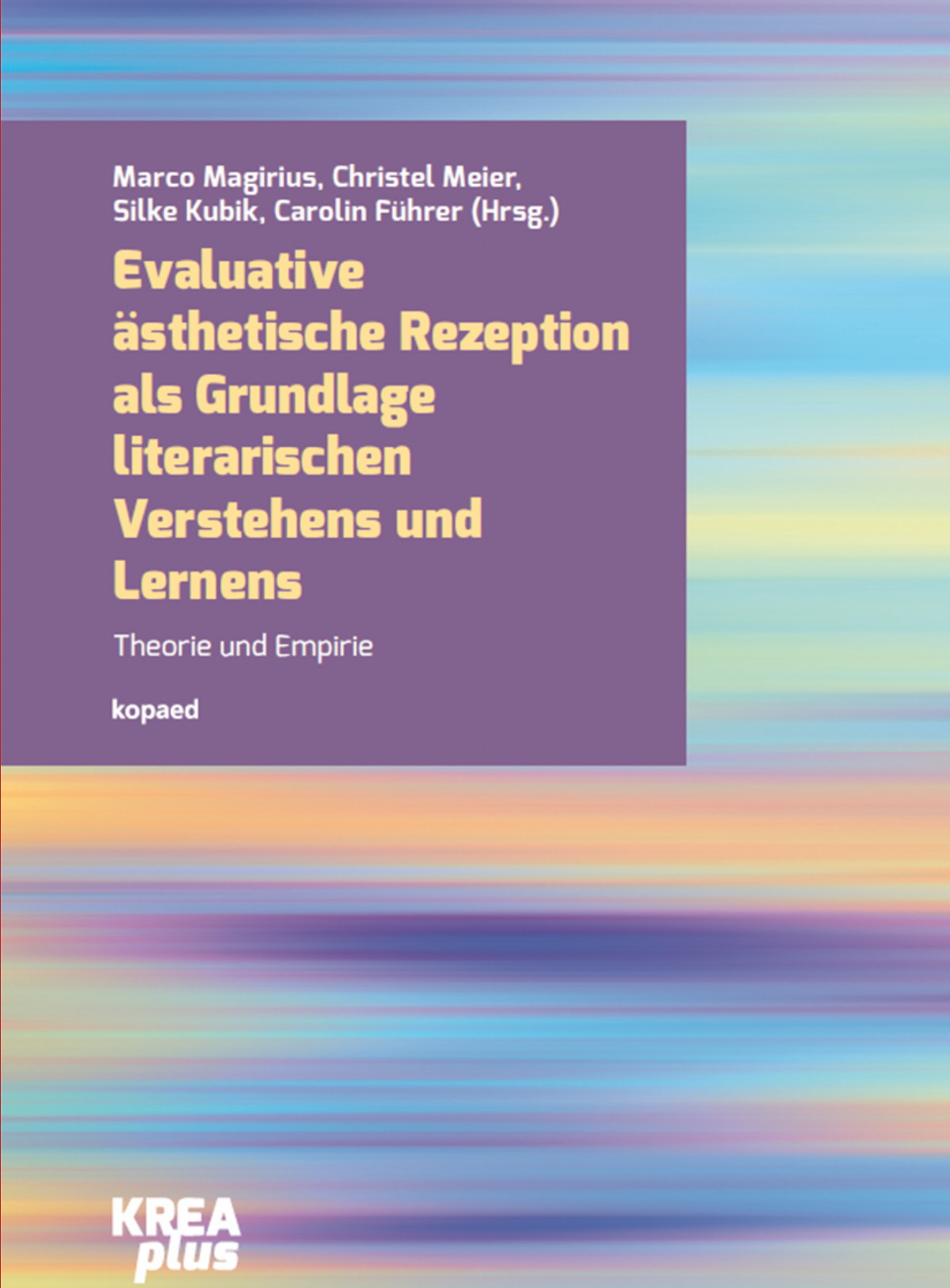 Gänsehaut, Liebe und Langeweile. Sprachliche Konstitution von Emotionen in Laienbuchrezensionen aus dem Schullektürekanon
Gänsehaut, Liebe und Langeweile. Sprachliche Konstitution von Emotionen in Laienbuchrezensionen aus dem Schullektürekanon